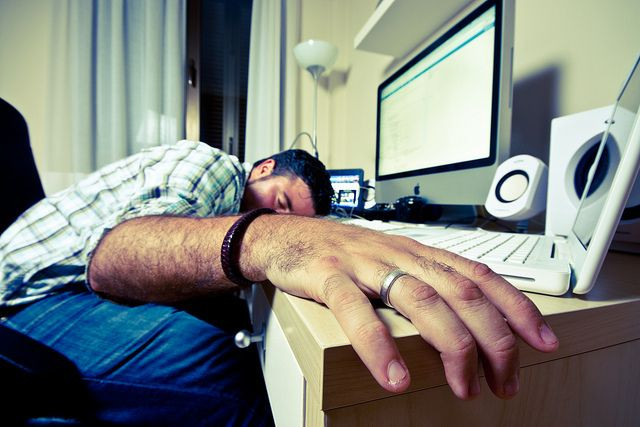Working Out May Boost Alcohol Consumption Levels As Weekend Approaches

There’s no debate the end of the week brings a great deal more happiness than the beginning of the week. But that happiness also tends to be accompanied by a bit of self-destruction when you find both at the bottom of a bottle. A new study suggests that while we may be most active at the end of the week, we also drink the most.
You may consider working out a chore, equivalent to scrubbing toilets; or you could see it as a welcome break. Researchers from Northwestern University welcome all attitudes, as their latest research finds the majority of people, for one reason or another, tend to hit the gym between Thursday and Sunday — the same period of time when alcohol consumption is at its highest. The findings could lead to important insights about how people maintain their health.
“The key question at this point is why this association exists,” David Conroy, lead author and Professor of Kinesiology and Human Development, told Medical Daily. “What are the mechanisms?”
The trick, it turns out, is getting people to exercise more on days when they aren’t also drinking. That may be challenging given the current findings. Conroy and a team of colleagues recruited 150 participants, ages 18 to 89, to send the team daily updates via their smartphones for 21 days. They repeated this three times, at different points throughout the year. Each update involved how much the subject drank that day and whether he or she exercised.
In contrast to other studies of a similar nature, Conroy said his team's stands out because respondents were asked for immediate feedback each day, rather than in bulk after a 30-day period. The format also allowed researchers to probe a little deeper into the particulars, Conroy said in a University release. “It’s not people who exercise more drink more,” he explained. “It’s that on days when people are more active they tend to drink more than on days they are less active.”
A number of theories may explain this behavior. The simplest, and perhaps least satisfying, is that people simply have more free time toward the end of the week to enjoy things other than work. Although, Conroy says the study controled for the day of the week, so, “in this case, the association wasn't an artifact of synchronized behaviors because of the day.”
Another explanation is people work out more at the end of the week because they want to offset the effects of their drinking. A third possibility is they drink more to reward themselves for all their hard work earlier in the week. In reality, Conroy isn’t sure which theories do the heavy lifting.
“These are certainly plausible explanations,” he told Medical Daily. “We don't have any data to support or contradict them. It will be important to test different mechanisms for this association in our future work.”
If the research bears out a clearer causal link, experts may be able to develop strategies for healthy living that recommend exercise toward the beginning of the week. People will be able to see, for example, how much their drinking offsets the hours of effort they put in on the treadmill, which then lets them change their behavior.
“Once we understand those,” Conroy said, “we can draw more informed conclusions about how to develop interventions to promote physical activity without inadvertently increasing risks due to alcohol use.”
Source: Conroy D, Ram N, Pincus A, et al. Daily Physical Activity and Alcohol Use Across the Adult Lifespan. Health Psychology. 2014.
Published by Medicaldaily.com



























